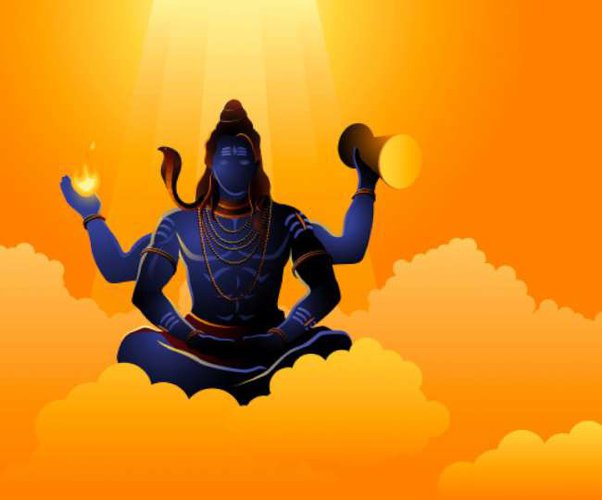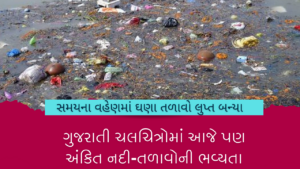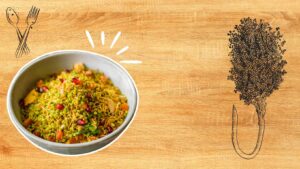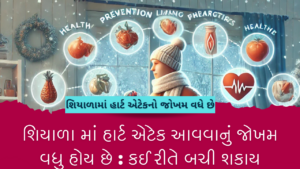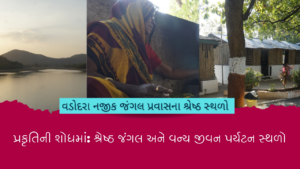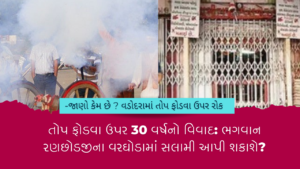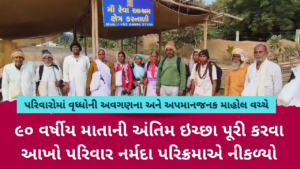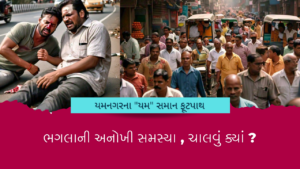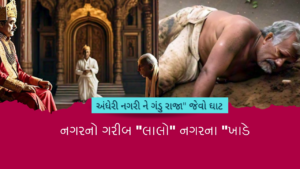India, a country renowned for its extensive cultural legacy, honours everything that artfully incorporates cosmic allusions and rationalisation from science into every custom. Every celebration held here has a complex relationship with the lunar cycle. The story of the holy month of ‘Shravan’, which embodies significant spiritual and scientific value, is one of these beloved tales. This connection provides important insights into how we interact with the vastness of the cosmos and goes beyond mere symbolism.
The Story of Shravan
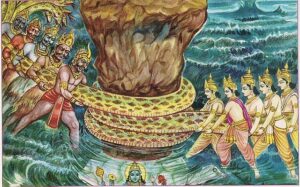 It is fundamental to know where this notion comes from before moving on to the scientific justification for it. The milky ocean was stirred during the ‘Samudra Manthan’, an important ‘Puranas’ story, in search of the amrit, the nectar of immortality. 14 priceless rubies emerged from the ocean as a result of this technique. The 14th gem known as ‘Halahal’ was left unaltered, while the devas and asuras each received one of the other 13 rubies. Halahal was an incredibly powerful poison that had the power to wipe out the entire universe and every living thing. Lord Shiva drank the Halahal and kept it in his throat to guard the universe. His throat turned blue as a result of this, giving him the name ‘Neelkantha’.
It is fundamental to know where this notion comes from before moving on to the scientific justification for it. The milky ocean was stirred during the ‘Samudra Manthan’, an important ‘Puranas’ story, in search of the amrit, the nectar of immortality. 14 priceless rubies emerged from the ocean as a result of this technique. The 14th gem known as ‘Halahal’ was left unaltered, while the devas and asuras each received one of the other 13 rubies. Halahal was an incredibly powerful poison that had the power to wipe out the entire universe and every living thing. Lord Shiva drank the Halahal and kept it in his throat to guard the universe. His throat turned blue as a result of this, giving him the name ‘Neelkantha’.
 Thus, gods and demons offered ‘Gangajal’ to Lord Shiva in an effort to lessen the effects of poison. According to the Vedas, this entire incident took place in the month of ‘Shravan’, which is why followers practise fasts and present ‘Gangajal’ to the Shivalinga. Many indulge in Lord Shiva’s preferred satvik diet during this season, it is seen as being extremely productive.
Thus, gods and demons offered ‘Gangajal’ to Lord Shiva in an effort to lessen the effects of poison. According to the Vedas, this entire incident took place in the month of ‘Shravan’, which is why followers practise fasts and present ‘Gangajal’ to the Shivalinga. Many indulge in Lord Shiva’s preferred satvik diet during this season, it is seen as being extremely productive.
The No Non- Veg Month
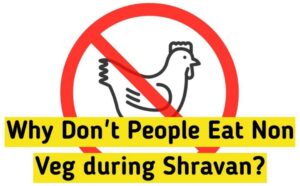 It is the month of Shravan, so we wouldn’t be shocked if parents or other elders have told you to stay away from non-vegetarian meals. What is it about the month of Shravan that forbids consuming non-vegetarian food? The inquiries on reasoning behind this practise have always been dismissed as unimportant. The only justification given is that since Shravan is a holy month honouring Lord Shiva, eating meat during this time is blasphemous. Though this is not a ‘rational’ enough reason.
It is the month of Shravan, so we wouldn’t be shocked if parents or other elders have told you to stay away from non-vegetarian meals. What is it about the month of Shravan that forbids consuming non-vegetarian food? The inquiries on reasoning behind this practise have always been dismissed as unimportant. The only justification given is that since Shravan is a holy month honouring Lord Shiva, eating meat during this time is blasphemous. Though this is not a ‘rational’ enough reason.
Light on Digestion
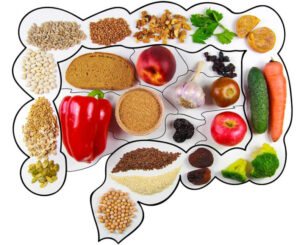 The month of Shravan is frequently referred to as monsoon season. Before the era of global warming, the likelihood of experiencing sunlight was relatively low. Even now, a shortage of vitamin D in our bodies is caused when rain lingers over a cloud. And because a human body is formed of panchtatva; agni, vayu, dharti, jal and aakash, a temporary shortage of one can make it more difficult for our body to function and have an adverse effect on our immunity. Our digestive system slows down as a result. Because consuming meat would be difficult for the body to digest, individuals think about eating more satvik and light food.
The month of Shravan is frequently referred to as monsoon season. Before the era of global warming, the likelihood of experiencing sunlight was relatively low. Even now, a shortage of vitamin D in our bodies is caused when rain lingers over a cloud. And because a human body is formed of panchtatva; agni, vayu, dharti, jal and aakash, a temporary shortage of one can make it more difficult for our body to function and have an adverse effect on our immunity. Our digestive system slows down as a result. Because consuming meat would be difficult for the body to digest, individuals think about eating more satvik and light food.
The Month of Love
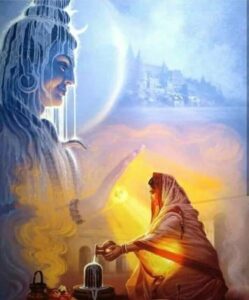 You would have observed single girls observing ‘Somwar’ fasts at this time in an effort to find a husband like Shiva. Shravan is undoubtedly a month of love. Water-based animals like fish and seahorses can reproduce well during the monsoon season. Prioritising the comfort and safety of these creatures during their mating season in previous times, when farms were not easily accessible, people avoided eating seafood during the holy month of Shravan. During this sacred season, it was thought improper to hurt or kill any living things, especially those who were pregnant or laying eggs. As a result, many started eating vegetarian as a sign of respect.
You would have observed single girls observing ‘Somwar’ fasts at this time in an effort to find a husband like Shiva. Shravan is undoubtedly a month of love. Water-based animals like fish and seahorses can reproduce well during the monsoon season. Prioritising the comfort and safety of these creatures during their mating season in previous times, when farms were not easily accessible, people avoided eating seafood during the holy month of Shravan. During this sacred season, it was thought improper to hurt or kill any living things, especially those who were pregnant or laying eggs. As a result, many started eating vegetarian as a sign of respect.
Water Borne Diseases at its Peak
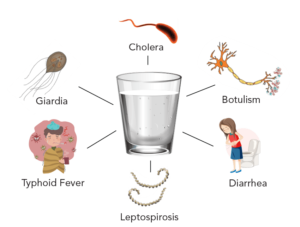 The water-borne illnesses that the rainy season brings with it is another major factor supporting this idea. There is a popular perception that non-vegetarian foods have a higher risk of contracting an infection during this time, and that eating them can harm a person’s body as well. Diseases like cholera, dengue, typhoid, etc. considerably increase during this season, thus it is considered safe to consume items that can keep you risk-free.
The water-borne illnesses that the rainy season brings with it is another major factor supporting this idea. There is a popular perception that non-vegetarian foods have a higher risk of contracting an infection during this time, and that eating them can harm a person’s body as well. Diseases like cholera, dengue, typhoid, etc. considerably increase during this season, thus it is considered safe to consume items that can keep you risk-free.
For Fitness
Working people, especially farmers, used to stay at home and do nothing during the monsoon season when severe rains used to cause havoc. All they did was eat and sleep. As a result, they put on weight and developed gastrointestinal issues. They then started to rely on a light, vegetarian diet during the monsoon season.
Celebrating a Series of Festivals
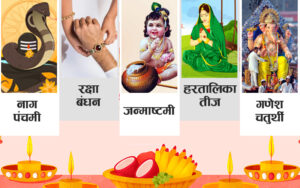 The majority of Hindu holidays, including Rakshabandhan, Teej, Janmashtami, Naag Panchami, and others, fall during this time. For this reason, even though the palate preferences fluctuate frequently, conscious people frequently adhere to a single rule by following the same system throughout the month.
The majority of Hindu holidays, including Rakshabandhan, Teej, Janmashtami, Naag Panchami, and others, fall during this time. For this reason, even though the palate preferences fluctuate frequently, conscious people frequently adhere to a single rule by following the same system throughout the month.
Although some may criticise these customs as being blindly followed, it is important to understand where they came from and how they affect one’s way of life, physical appearance, and overall health. It is essential to approach them with an open mind and attempt to simplify them when faced with unfamiliar aspects rather than dismissing them without justification. We must recognise their importance and make decisions that are based on our own knowledge and understanding.

